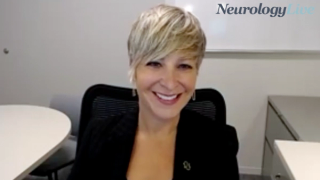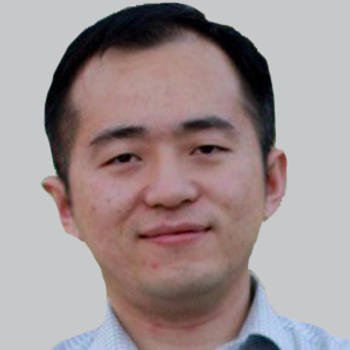
Dementia and Alzheimer Disease
Latest News
Latest Videos

Podcasts
CME Content
More News

Xu Li, PhD, a research associate in the F.M. Kirby Research Center for Functional Brain Imaging at Kennedy Krieger Institute, provided commentary on a promising, recently published study using QSM MRI to detect cognitive changes in Alzheimer disease.

The vice president of scientific engagement at the Alzheimer’s Association provided clinical insights on the most major considerations and precautions clinicians should have about diagnostic and commercially available tests for suspected Alzheimer disease. [WATCH TIME: 3 minutes]

Here's some of what is coming soon to NeurologyLive® this week.

Take 5 minutes to catch up on NeurologyLive®'s highlights from the week ending September 26, 2025.

The vice president of scientific engagement at the Alzheimer’s Association discussed the organization’s recently published first guidelines on blood-based biomarkers, highlighting accuracy, clinical use, and patient considerations.

Ionis reveals promising trial results for zilganersen, a potential first treatment for Alexander disease, aiming to transform patient care.

Here's some of what is coming soon to NeurologyLive® this week.

The vice chair of neurology at West Virginia University outlined key challenges in academic neurology and reflected on the evolving responsibilities of vice chairs in supporting departmental growth and leadership. [WATCH TIME: 3 minutes]

Here's some of what is coming soon to NeurologyLive® this week.

Take 5 minutes to catch up on NeurologyLive®'s highlights from the week ending September 12, 2025.

In this seventh episode, Cohen outlined emerging Alzheimer therapies targeting amyloid, tau, and inflammation, highlighting novel antibody approaches, genetic knockdown strategies, and repurposed GLP-1 receptor agonists. Supported by Eli Lilly.

Tamara Kaplan, MD, vice chair of education for the department of neurology at Mass General Brigham, shares insights on evolving neurology education, highlighting her framework for supporting clinician educators and the growing recognition of education as a career path.

In this sixth episode, Cohen discussed aligning patient expectations with the goals of antiamyloid antibody treatment, emphasizing disease slowing, eligibility factors, and real-world satisfaction data. Supported by Eli Lilly.

The vice president of scientific engagement at the Alzheimer's Association shared data presented at AAIC 2025 from the phase 3 U.S. POINTER study among patients at risk for dementia. [WATCH TIME: 4 minutes]

At 48 weeks, patients treated with blarcamesine showed an 84.7% reduction in decline on the primary cognitive end point compared with placebo.

In this fifth episode, Cohen explained the types, risks, and monitoring protocols for ARIA with antiamyloid antibodies, emphasizing MRI schedules, symptom vigilance, and individualized patient safety considerations. Supported by Eli Lilly.

Catch up on any of the neurology news headlines you may have missed in August 2025, compiled into 1 place by the NeurologyLive® team.

In this fourth episode, Sharon Cohen, MD, FRCPC, talked about key differences between lecanemab and donanemab in terms of eligibility requirements to the receive the treatment. Supported by Eli Lilly.

Take 5 minutes to catch up on NeurologyLive®'s highlights from the week ending September 5, 2025.

A recent study reveals GLP-1 receptor agonists significantly reduce medication use and symptoms in idiopathic intracranial hypertension patients, suggesting a promising management strategy.

Eisai and Biogen seek FDA approval for a convenient, at-home Alzheimer’s treatment option, enhancing patient flexibility and reducing costs.

Semaglutide significantly reduced the risk of heart attack, stroke, and death compared to tirzepatide in patients with obesity and cardiovascular disease.

Research reveals that increased sedentary time significantly impacts neurodegeneration and cognitive decline in older adults, especially those genetically at risk for Alzheimer’s.

The autoinjector, branded as Leqembi Iqlik, contains a 360 mg/1.8 mL dose administered over 15 seconds. It is expected to enhance Alzheimer treatment accessibility and offer cost savings for patients.

Take 5 minutes to catch up on NeurologyLive®'s highlights from the week ending August 29, 2025.

























